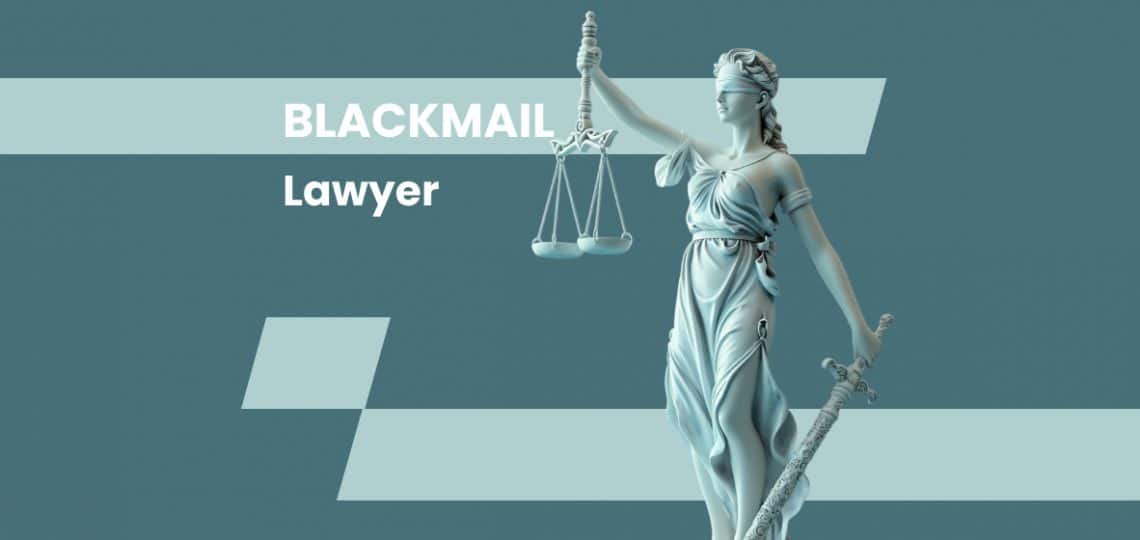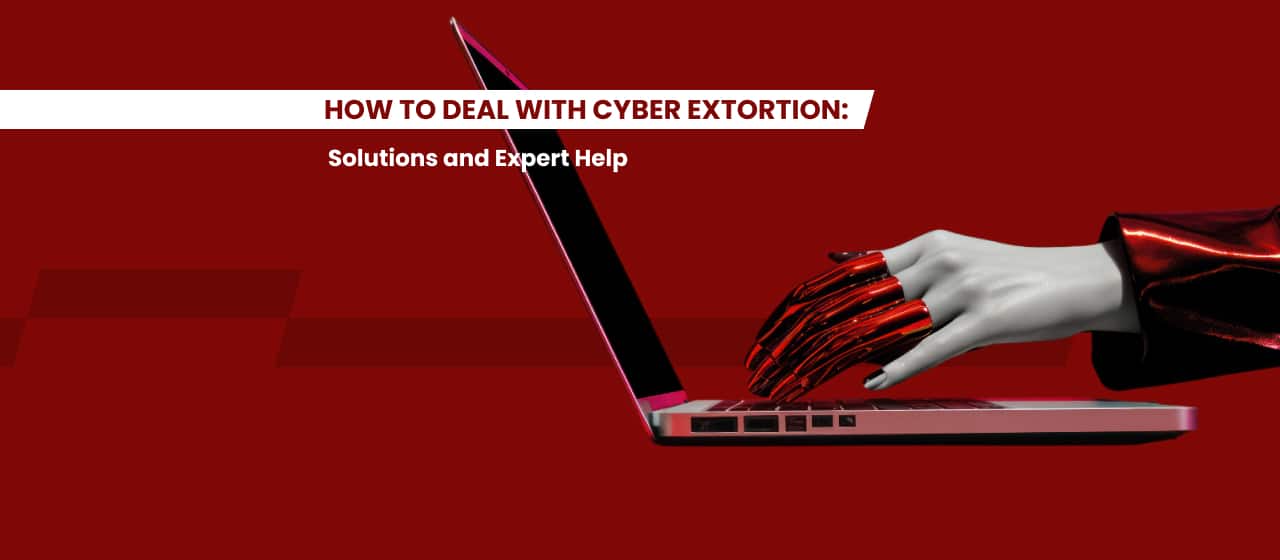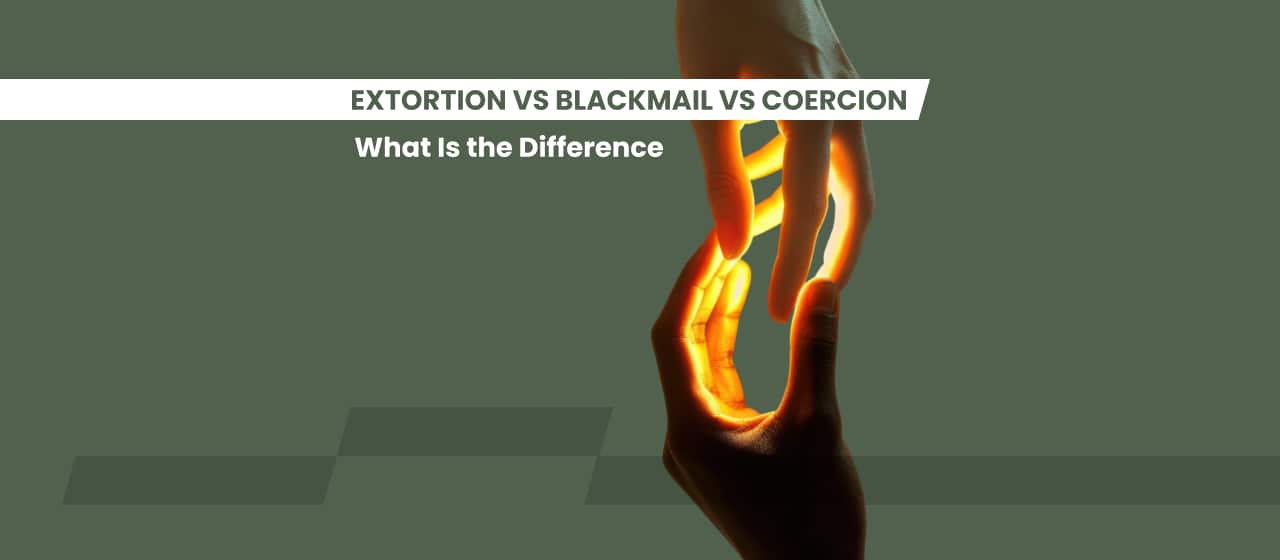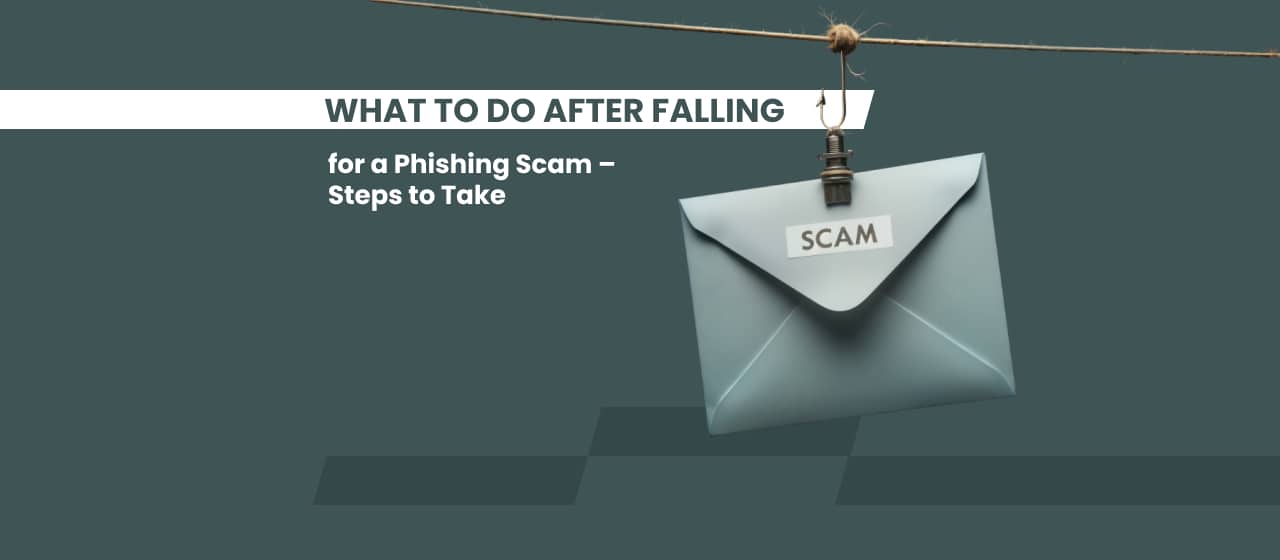It’s normal for victims of blackmail to feel helpless in the face of ongoing threats. Not only is the intimidation demoralizing, but the perpetrator often hides behind anonymity for protection. A common misconception is that the only option is to ignore the abuse. However, the law provides avenues for victims to take action, depending on their circumstances. That said, you shouldn’t pursue legal action without consulting with a legal professional. Working with a blackmail attorney ensures that you understand your options fully and the best way to move forward.
What is a Blackmail Attorney?
The terms blackmail, extortion, or sextortion lawyer are used interchangeably to describe a legal professional who specializes in extortion or blackmail laws. They can advise you on the local and federal laws that may apply to your case. An extortion attorney can also advise you on the best legal steps to take for protection. If you decide to take action legally, you need a blackmail attorney to make sure it is successful.
Why You May Need a Blackmail Lawyer
The law is extremely complex, and it requires specialized education to understand it effectively. Blackmail, sextortion, and extortion have varying laws and legal definitions at the local level. A blackmail attorney can help decipher the laws that apply to your case and even bring your attacker to justice. Here are the reasons why you should consider working with an extortion lawyer.
Professional Assistance
With any legal action comes a process that requires many steps. A qualified blackmail attorney is aware of everything needed to pursue legal action. They can also navigate complex laws and advise you on preserving evidence in a way that’s legally admissible. Whether it’s supporting criminal prosecution or receiving financial compensation, extortion attorneys are incredibly valuable.
Civil Legal Process
Blackmail cases are often handled in criminal court. However, victims can also file a lawsuit for damages that resulted from the extortion. Victims commonly sue the perpetrator for emotional distress, defamation, and invasion of privacy. Victims can maintain full control over the civil legal process, filing, settling, or dropping the lawsuit at any time. They can also potentially receive financial compensation for experiencing the crime.
Burden of proof
It’s important to remember that civil legal action has a lower burden of proof. Victims may turn to civil litigation because criminal cases require evidence that is “beyond a reasonable doubt.” This means that the prosecution presents compelling evidence that convinces the jury of the defendant’s guilt. Conversely, civil court requires a “preponderance of the evidence,” meaning the evidence proves that the claim is likely true.
Based on these two concepts, civil litigation can be less intimidating to victims and have better odds of succeeding. However, only a blackmail lawyer can provide an informed opinion on what’s best for your situation.
DMCA Takedown Notices
The Digital Millennium Copyright Act (DMCA) is a federal law that expands copyright protections to cover the digital environment. With this statute, DMCA takedown notices could inform online service providers to remove infringing content. Many cases of sextortion involve victims sending explicit content that they took themselves which gives them copyright protection.
How a Sextortion Lawyer Uses DMCA Takedown Notices
A sextortion attorney can file a DMCA takedown notice to remove non-consensual intimate images or videos posted online. Online platforms like social media and adult websites often honor the DMCA. A study from the University of Michigan found that NCII content on Twitter/X that was served a DMCA takedown notice was removed within 25 hours. In comparison, NCII content reported through the platform remained unaddressed for 3 weeks.
Cease and Desist Letters
A sextortion attorney uses cease-and-desist letters to warn perpetrators to stop their actions or else face legal consequences. This can be an effective tactic to pressure the criminal to stop the blackmail. However, it may also inform the blackmailer that you have the funds for a blackmail lawyer and encourage retaliation. Consulting a sextortion attorney is the best way to understand if a cease-and-desist letter is the right approach.
Criminal Prosecution
An extortion attorney is typically involved with civil litigation. However, they can also support blackmail victims through criminal investigations. These legal professionals can act as a liaison between the victim and law enforcement. A blackmail attorney will advocate for the victim’s interests and guide them through the process.
How to Choose a Qualified Extortion Lawyer
Not every extortion lawyer is the same. Some are more qualified than others. You will need a good blackmail lawyer in order to take legal action effectively. So, how do you know when an extortion attorney is qualified? We’ve compiled a list of factors to consider in your search.
- Relevant experience. A sextortion attorney should have relevant experience and specialized knowledge of laws regarding blackmail and extortion. They should be well-versed in cybercrime laws and how to help victims.
- Positive reputation. You can look for reviews from past clients for a sextortion attorney. These reviews can give you insight into the general reception of a professional’s services. You can typically find reviews or testimonials online.
- Strong professional standing. The blackmail lawyer should be licensed to practice law in your state. In some cases, you can look for the lawyer’s disciplinary record online.
- Clear communication. An extortion attorney needs to be responsive and have clear communication. A sextortion lawyer who has unusually long delays or fails to keep you informed is not completely reliable.
- Transparent billing practices. Hiring a sextortion lawyer can be expensive. However, how they charge can vary. Some charge by the hour and others charge a flat fee. Make sure the billing structure is clearly defined and communicated to you before signing on with a blackmail attorney.
How Anonymity Can Be an Obstacle for an Extortion Lawyer
Many blackmailers operate through the internet and hide behind anonymity. This can pose a challenge when it comes to taking legal action. Lawsuits and criminal prosecution generally require the defendant to be identified. Without knowing who or where the blackmailer is, it’s unclear what jurisdiction the case falls under.
Knowing the criminal’s identity is vital for taking legal action successfully. You can work with law enforcement to perform an investigation and help identify a cybercriminal. However, you can also work with cybersecurity experts at private firms.
Work with Cyber Investigation Inc. To Uncover Digital Evidence and Strengthen Your Case
Strong evidence is the cornerstone of any civil or criminal legal process, and that’s where Cyber Investigation Inc. can help. Our team is experienced in helping cybercrime victims uncover digital evidence to strengthen their cases.
We can trace digital data, unmasking the blackmailer’s identity and geolocation. Our in-house legal team can also provide counsel for the appropriate legal steps to take for your situation. If you are a victim looking for assistance, call our Blackmail Helpline to speak to one of our experts.







